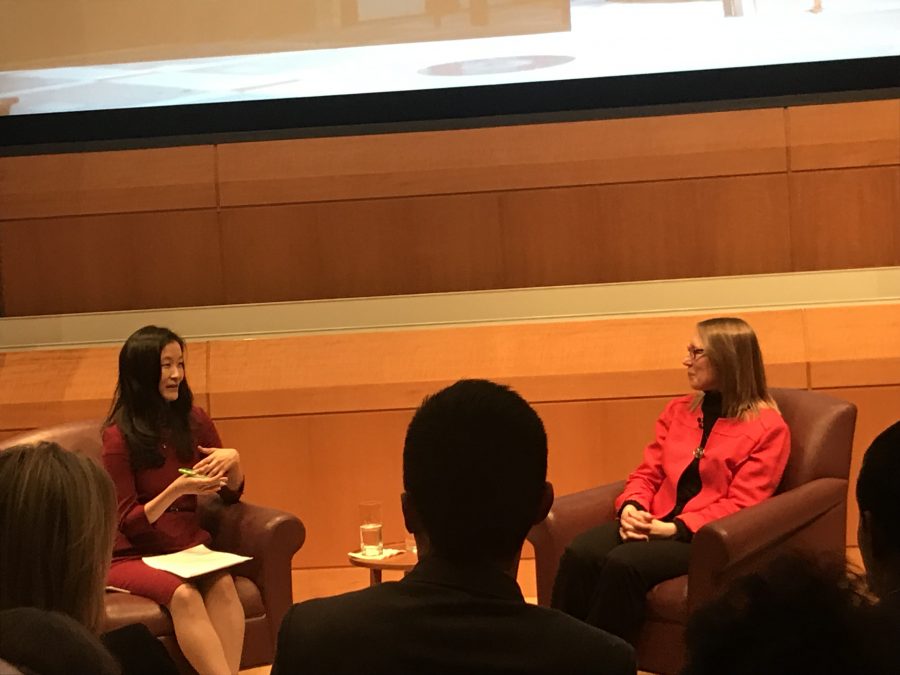Commissioner of the Securities and Exchange Commission Hester Peirce and crypto-journalist Laura Shin conversed about how the SEC is fighting to keep up with cryptocurrency as it continues to evolve at the Stern School of Business on Tuesday.
“These people are doing things that I personally wouldn’t have the technological capability to do,” said Peirce, nicknamed “Crypto Mom” for her advocacy for cryptocurrency. “But I think it’s a really exciting space.”
The event was held in conjunction with the NYU Stern Blockchain Digital Asset Forum, founded in 2017 and intends to “position NYU as a world thought leader in all things blockchain,” in conjunction with the Stern Executive masters program.
Cryptocurrencies such as Bitcoin and Ethereum are digital currencies that can be anonymously transferred online from person to person without any outside interference. Cryptocurrencies have come under scrutiny for their potential to be used in criminal dealings, such as money laundering, and their lack of security.
Cryptocurrencies are supported by blockchain. Blockchain refers to a growing list of data points that evolves into a larger database. The chain begins with a record, which could be any point of information. These records are each given a unique code, known as a hash, meant to distinguish them from other data points. Records are then compiled into blocks, which are just collections of records. These blocks are then also compiled, forming the blockchain.
The SEC’s intentions include protecting investors and ensuring fairness and efficiency in markets, according to the agency’s website. There are currently five commissioners with the SEC, who serve as joint heads of the agencies.
Shin asked Peirce about how the SEC is planning for future innovations in cryptocurrency as well as about her own role in the process. Pierce said the SEC attempts to remain flexible in preparation for inevitable future changes.
“I think that I can play a role in looking at ways that we can open the doors to make it easier for people to do what they’re trying to do in compliance with the SEC,” Peirce said.
However, Pierce admitted that the agency has struggled to keep up with the rapidly growing market of cryptocurrency and the digitalization of currency.
“In general the agency hasn’t been great on innovation and so this is sort of the natural area for me to be looking at because this is where innovation and the SEC are meeting,” Peirce said.
Shin also questioned Peirce on whether blockchain could be used to address growing problems related to the emergence of cryptocurrency. The main concern is that people trading in cryptocurrencies in foreign countries may unknowingly violate SEC regulations when trading with individuals in the U.S.
“I think that people are still looking through different approaches,” Peirce said. ”Some problems that we see now that could be addressed through a blockchain base.”
Stern sophomore Lucas Wang appreciated how open Peirce was with the issues the SEC faces regarding innovation.
“It was cool to see how cognizant she was of how the SEC is affecting innovation,” Wang said. “She didn’t place herself in some high ivory tower.”
Email Jesse Jimenez at [email protected].

























































































































































